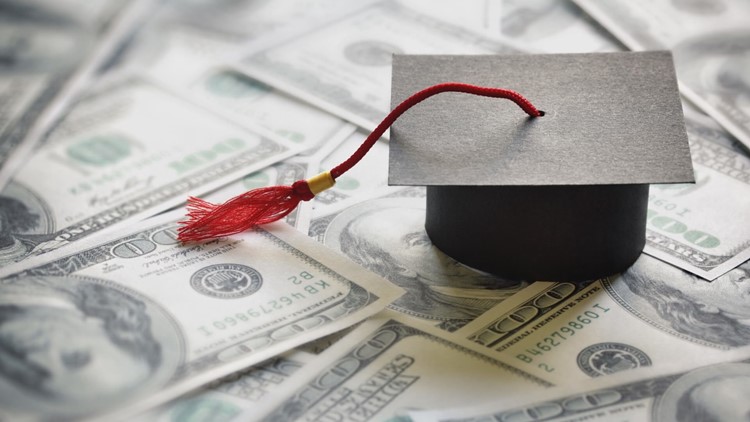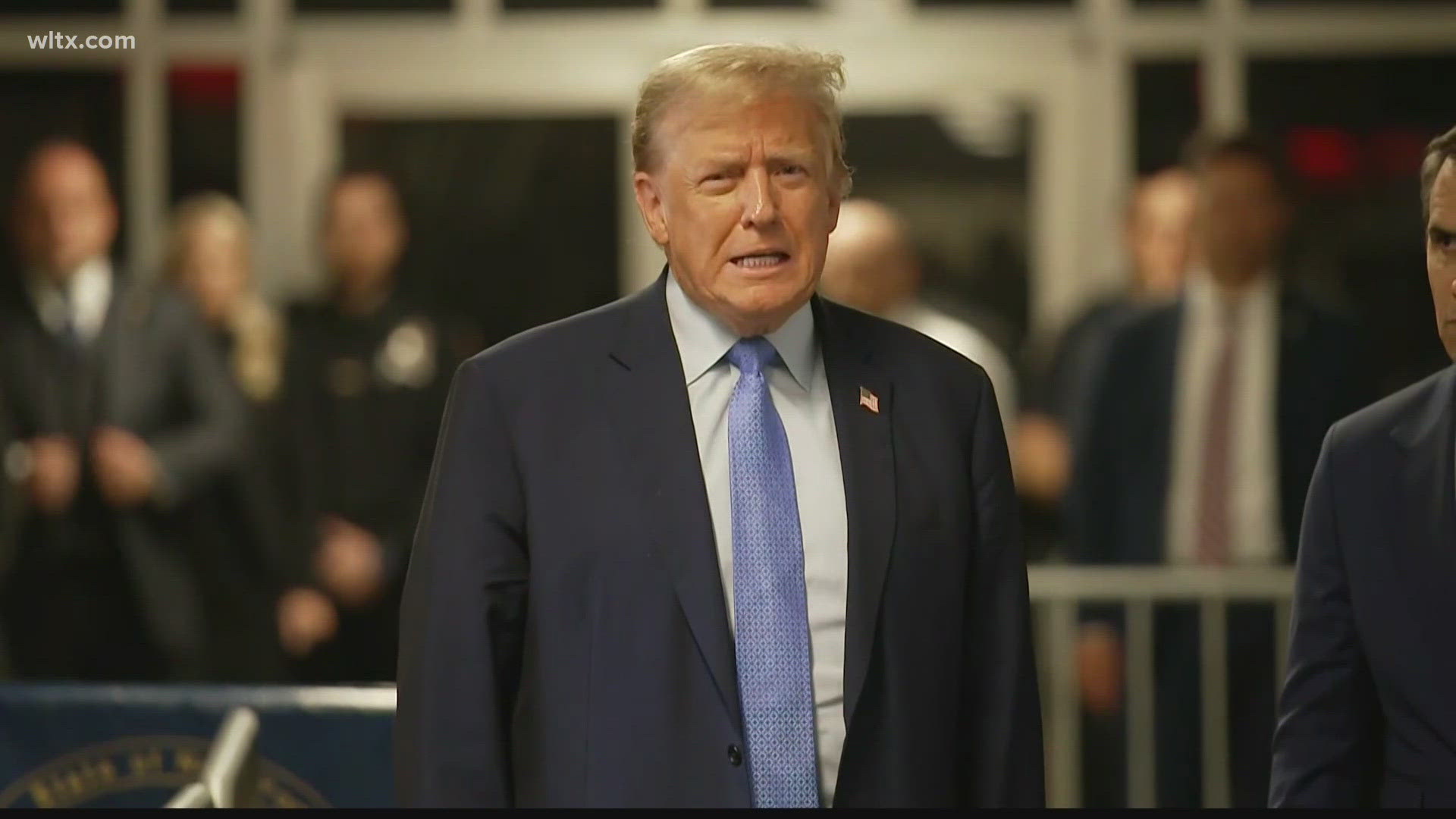NEW YORK — President Joe Biden once again is trying to deliver widespread student debt forgiveness, with a new plan unveiled on Monday that could help about 30 million borrowers erase some or all of their college loans.
The latest attempt at broad debt relief comes less than a year after the Supreme Court blocked Biden's previous attempt to help student borrowers, when the court's June 2023 ruling denied up to $20,000 in forgiveness to roughly 40 million Americans.
Biden, who had made student loan relief a major campaign pledge, unveiled the new plan on Monday, describing it as potentially "life changing" for millions of Americans. About 43 million people are carrying $1.7 trillion in student debt, a burden that some borrowers and their advocates say hampers their ability to buy a home or achieve other financial milestones.
"While a college degree still is a ticket to the middle class, that ticket is becoming much too expensive. Much too expensive," Biden said an event at Madison College in Madison, Wisconsin. "The ability for working and middle-class folks to repay their student loans has become so burdensome that a lot can't repay it for even decades after being in school."
Here's what to know about Biden's new plan and who would qualify.
How is this plan different from the one struck down by the Supreme Court?
The new plan relies on a different law to provide debt relief to student borrowers.
The previous plan relied on the Health and Economic Recovery Omnibus Emergency Solutions Act, or HEROES Act, a pandemic-era stimulus package. The Supreme Court ruled that law didn't provide the Biden administration with the authority to forgive student debt.
The new plan turns to an older law, the Higher Education Act, which allows the Secretary of Education to "compromise, waive or release" federal student loans. It's through this mechanism that the Biden administration is tackling its new debt relief program.
Who will qualify for debt forgiveness under the new plan?
There are 5 major groups of borrowers who could benefit under the new plan.
- 2.5 million borrowers who have been in repayment for 20 years or more.
The Biden administration said people with only undergraduate debt could qualify for forgiveness if they first began repaying their loans at least 20 years ago, or on or before July 1, 2005. Borrowers with graduate school debt would qualify if they first began repaying their loans 25 years ago, or on or before July 1, 2000.
Borrowers don't have to be enrolled in an income-driven repayment plan to qualify, the White House said. Both direct loans and direct consolidation loans would be covered.
- People with debt who attended "low-financial-value programs"
College is supposed to provide its graduates with the skills to achieve higher-income careers, but there are some programs that have left people in debt but without a marketable degree, such as some offered by for-profit colleges like the now-defunct Corinthian Colleges.
The new plan would cancel student debt for loans from colleges or programs that lost their eligibility to participate in the Federal student aid program or were denied recertification because they cheated students, the White House said. Borrowers who also attended colleges that don't provide "sufficient value," such as leaving grads without the ability to earn more than a high school grad, would also be eligible for relief.
- People experiencing hardship in paying back their loans.
Borrowers who are experiencing hardship that hampers their ability to repay their loans could also qualify for forgiveness. Although the White House didn't specify the financial threshold for qualifying under this pathway, it said this could cover borrowers at high risk of defaulting on their student loans or who are grappling with issues like medical debt.
- 25 million borrowers whose balances ballooned because of interest.
Some borrowers have seen their balances grow due to a financial issue called "negative amortization," in which a person's loan balance keeps growing despite their consistently making payments. Under the plan, roughly 25 million people who have experienced this issue could get up to $20,000 of their interest canceled.
- 2 million low- and middle-income borrowers who qualify for forgiveness but haven't applied.
The plan would also provide debt relief for about 2 million low- and middle-income borrowers who qualify for programs like Public Service Loan Forgiveness or income-driven repayment plans but haven't applied for them.
"No application will be needed for borrowers to receive this relief if the plan is implemented as proposed," the White House said.
What are the next steps to getting the plan approved?
The Education Department said it plans to release a formal proposal in the "coming months." That would usually be followed by a public comment period of 60 days. Then if the rule is finalized by November 1, it would usually take effect the following July — in this case, July 2025.
But the Higher Education Act authorizes the education secretary to fast-track rules for "early implementation" in some cases. The Biden administration recently used that power to accelerate student loan cancellation offered through a new federal repayment plan. Invoking that authority could allow Biden to start canceling debt later this year.
When could the new plan go into effect?
That's not known yet because the plan has to get pass some additional hurdles before becoming effective, as noted above. Asked by reporters when U.S. student loan recipients might see their interest balances canceled, officials said the forgiveness could happen starting "early this fall."
Could the plan be challenged in court?
Yes, conservative opponents are expected to challenge Biden's plan in court.
Republicans have repeatedly fought Biden's plan for student loan cancellation, saying it's an unfair benefit shouldered by taxpayers who repaid their loans or didn't go to college. Opponents say the Supreme Court was clear that widespread loan cancellation must come from Congress.
If Biden's plan faces a lawsuit, courts could order the administration to halt cancellation until legal questions are sorted out. That scenario could leave the plan on hold beyond the November presidential election. Even if it survives legal challenges, a Donald Trump victory would spell almost certain doom for Biden's plan.
— With reporting by the Associated Press.



